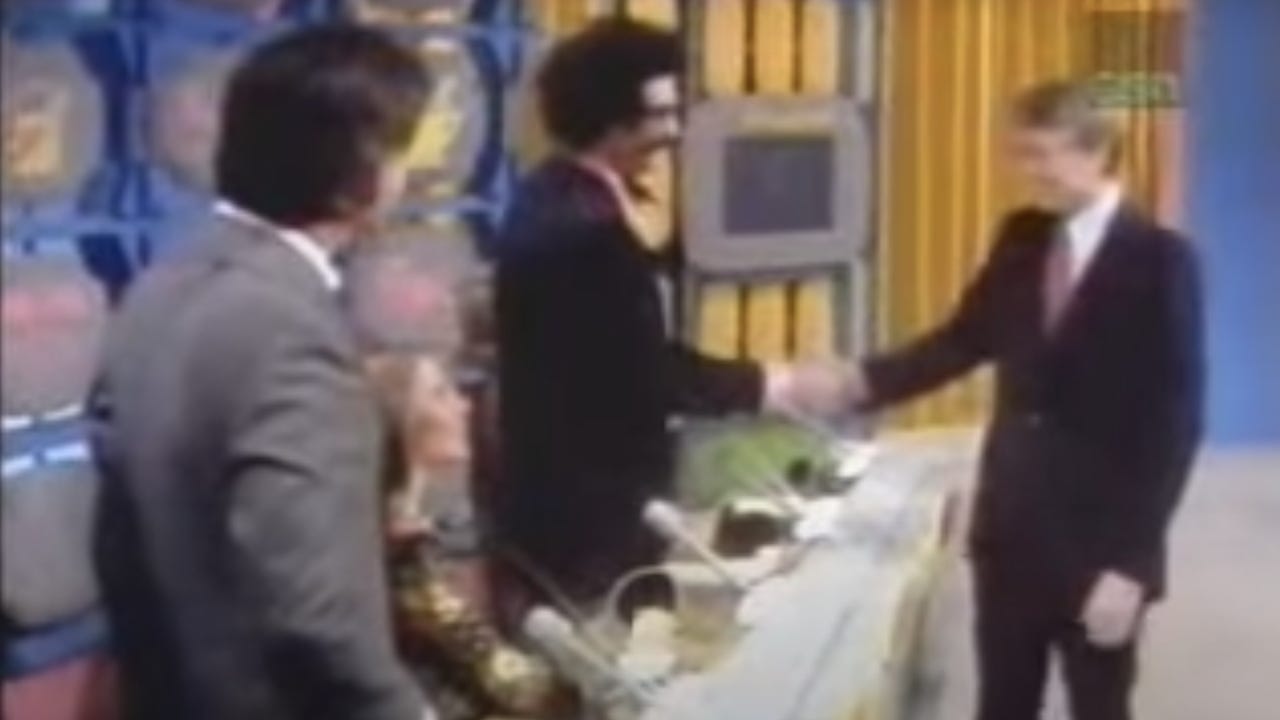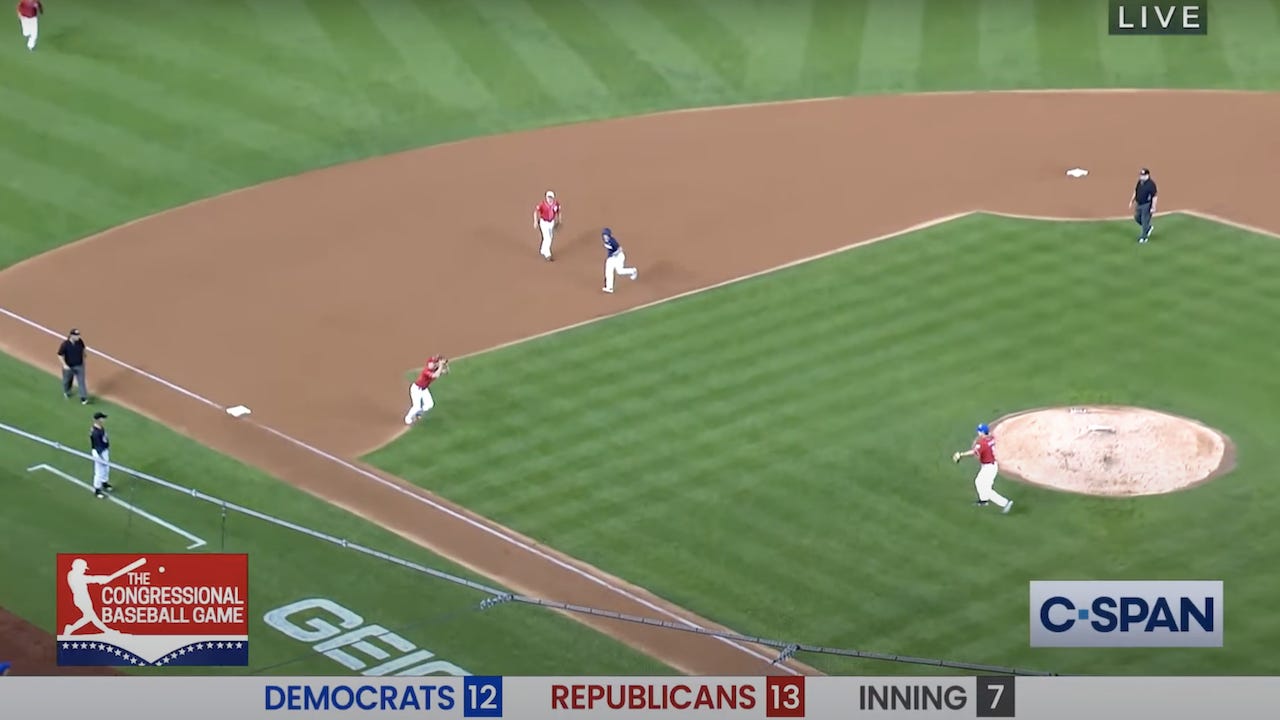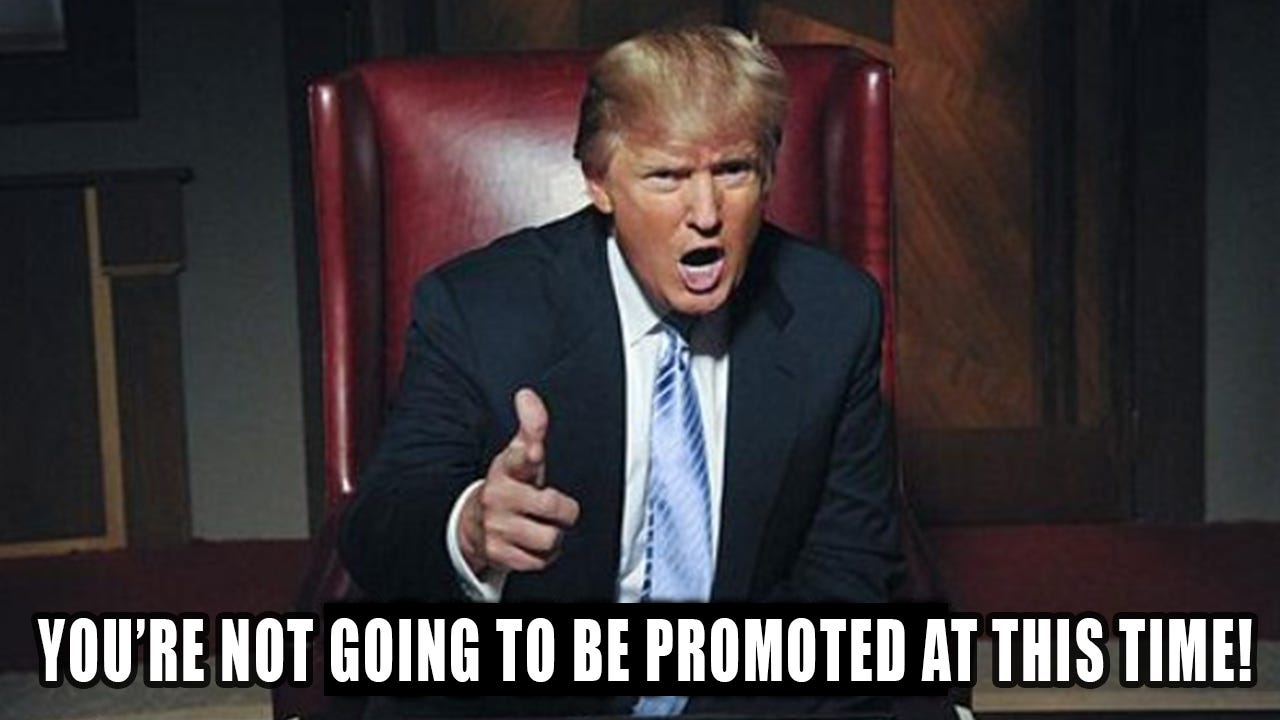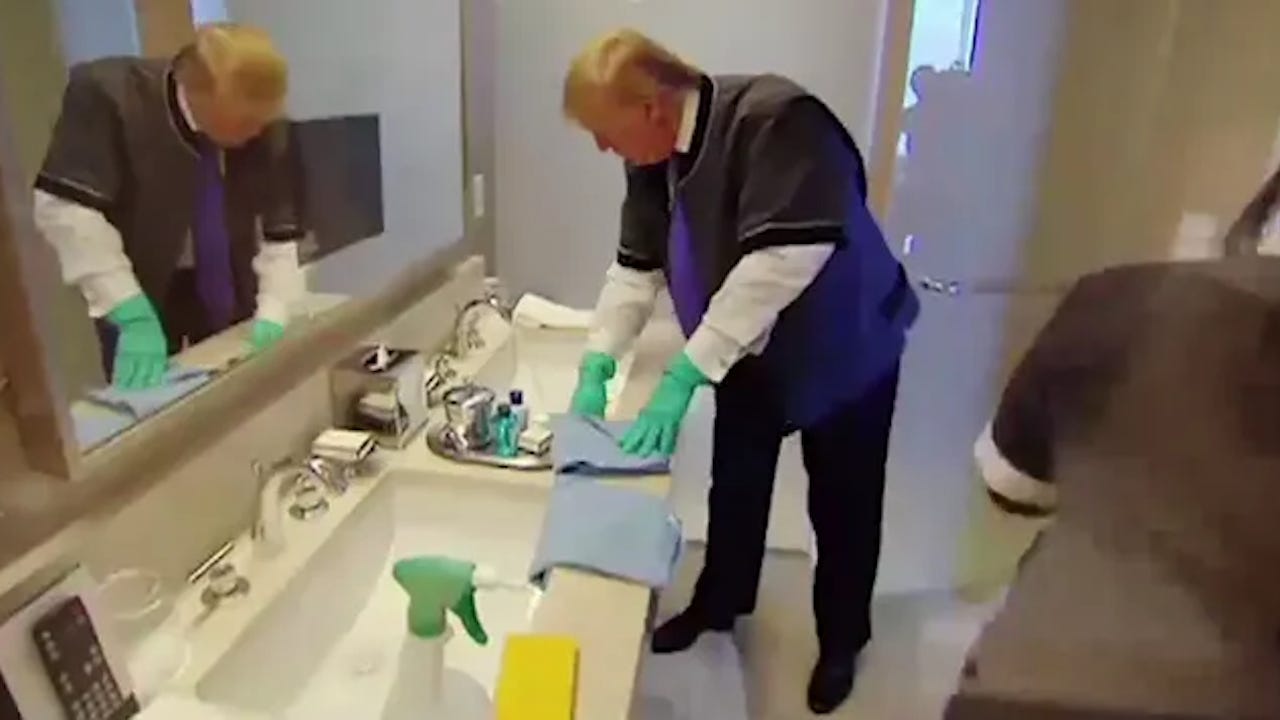How a Republican President Can Win the Media
The First Amendment of the US Constitution protects the freedom of speech and press. As Walter Cronkite said, “Freedom of the press is not just important to democracy. It is democracy.”
But the First Amendment hasn’t stopped presidents from trying to bully, pressure, regulate, and impress the press.
At George Washington’s first inauguration he was described in almost universally favorable terms, but by the end of his first term, with the encouragement of Jefferson behind-the-scenes, opposition papers popped up to attack Washington.
From 1776 to 1800, newspapers increased from under 50 to over 250, in part, because new federal laws made it cheaper to send mail through the postal system.
Overall, Washington’s approach to the press was to stay largely hands-off whereas his successor John Adams went full-on by signing the Alien and Sedition Acts, which criminalized journalistic dissent in the name of national security.
Three score and seven years later, Abraham Lincoln waged as biographer Harold Holzer described an “undeclared, unlegislated, unlitigated and largely unchallenged war” on newspapers.
Lincoln justified his actions in a letter,
Must I shoot a simple-minded soldier boy who deserts, while I must not touch the hair of a wily agitator who induces him to desert? I think that in such a case, to silence the agitator, and save the boy, is not only constitutional, but, withal, a great mercy.
Theodore Roosevelt probably did more to alter president-press relations than anyone who has held the office before or since.
He was the first president to give reporters working space inside the White House where he’d usually speak to them while his barber gave him his morning shave.
He staged some of the first photo-ops and invented the Sunday news drop, in order to give the press a hot story for their Monday edition.
Since TR, advances in technology have given presidents new ways to go over the press’s head. FDR leapfrogged reporters with his Fireside Chats on radio and JFK did so with his News Conferences on TV.
Our two most recent presidents are a case study of extremes.
Trump was excessively open.
He had little filter, which was exciting for a press that was bent on using anything he said against him. He gave them a ton of ammunition, but it was his “tell it as it is” bravado that got him elected in the first place. Like Theodore Roosevelt, Donald Trump wanted to be on the front page every day.
Biden on the other hand is excessively insulated.
Washington Post reporters Bob Woodward and Robert Costa described in their book “Peril” how top White House officials set up a wall to shield the gaffe-prone president from unscripted events and long interviews.
In the halls of the White House, you might be able to hear staffers whisper to each other, “Build the wall.” Of course, not in relation to the southern border where agents/scientists/experts have requested more wall as a multi-prong strategy to reduce illegal crossings, but in relation to protecting the president and therefore their own jobs.
In general, presidents want to enact their agenda; to enact their agenda requires congressional consensus; to get congressional consensus requires public support, and to get public support requires an effective press strategy.
Let’s explore what’s perhaps the best presidential press strategy?
First, a president should focus on one bill at a time.
Keeping too many balls in the air increases the risk they’ll all fall because it’s politically easier for the opposition to reject the juggle by disliking any one part of it.
F.O.C.U.S. = Follow One Course Until Success
The president should have a recurring weekly media schedule built around advancing whatever is his next legislative item. For example, let’s say its infrastructure…
Daily: Tweet
Each day tweet something different in regards to infrastructure: factoid, historical quote, poll, meme, benefit(s), etc.
Sun: News Drop
President could give a few favored reporters an inside scoop that, for example, Senator so-and-so is holding up the bill because he wants XYZ.
Mon: Speech
Political speeches tend to be a bit too long in our digital age, which then gets clipped down to whatever serves the bias of the media outlet. Speeches should be short, include visuals, and exist in written, video, and audio formats.
Tue: Ad
The ad could pan over parts of America’s crumbling infrastructure with a person explaining how a bridge collapsed on her and then dovetail into how America led the world in infrastructure with such things as the Brooklyn Bridge and then jump to a side-by-side of how we’re falling behind China today.
Wed: Debate or Interview
Why wait until an election to have debates? The president (or an ally) should debate a key member of the opposition to draw attention to the pros & cons of the legislation and to ultimately help the public decide which side is right. I believe the truth will prevail if given enough airtime. A great example of non-election year debating was between Ted Cruz vs. Bernie Sanders where in 2017 they debated about healthcare and then on another occasion taxation.
Thu: Endorsement
Reward an ally by having him/her give a speech, which the president could promote and hype up all over the internet. Ideally, the president’s infrastructure ally would be a member from the other party in order to increase bipartisan support or a renowned expert Americans’ respect like Elon Musk. The speech should be delivered from one of America’s crumbling bridges to highlight the necessity of the legislation.
Fri: Cabinet
The first 10 minutes of a cabinet meeting could be open to the press where each cabinet member would talk a minute about how the infrastructure bill would benefit their domain.
Sat: Rally
Fly to towns where the bill would most positively impact them and where their congressperson or senator perhaps remains on the fence.
And then for the president to be seen as more “likable” with low-information voters who are often the deciding demographic in US elections it’s about bread & circuses.
The White House Press Secretary should try to get the president on all of the popular TV shows.
For example, in 2001, George W. Bush threw out the first pitch at Game 3 of the World Series, seven weeks after September 11th. Bush also started the precedent of a pre-Super Bowl interview, which Obama turned into an annual presidential tradition.
Future presidents Jimmy Carter, Gerald Ford, and Ronald Reagan had appeared on the game show What’s My Line. In 1965, Senator Jon McCain appeared on Jeopardy! A president should appear on whatever are the popular gameshows of the time, such as Wheel of Fortune or Family Feud.
With that said, leveraging Hollywood would be easier for Democratic presidents whereas with Republican presidents corporate media may deny their appearance requests or try to cast them in the most negative light possible.
The White House, therefore, doesn’t have to depend on the owners of media, but could also create their own TV shows and movies.
Obama waited until after his presidency to create his production company: Higher Ground Productions. But why wait?
It has legal precedent. Obama had a weekly vlog: West Wing Week, which was created by Arun Chaudhary who was the first official White House videographer in history.
During the COVID pandemic, Governor Newsom spun a wheel to give out checks to the vaccinated.
Since 1909, Congress has hosted an annual baseball game of Republicans vs. Democrats.
Of course, unlike Obama being able to cash in on his celebrity with a big Netflix deal (it’s impossible to “get money out of politics”), White House generated shows/documentaries/movies would be publicly available on PBS, CSPAN, WhiteHouse.gov, and any other channel that would like to share it.
A president could host a “Civics Show” aimed at testing the political & historical knowledge of US citizens, officials, and celebrities.
A president could host “The Apprentice: Presidential Edition,” but since federal employees are nearly impossible to fire, the competitors would complete challenges for a chance to win a promotion.
A president could do an “Undercover President” series where the president goes around the country in disguise to check on the operations of various government agencies. Republican presidents should be striving to draw as much negative attention to the incompetent and unaccountable federal bureaucracy as possible so as to gin up outrage for its reform.
Finally, the White House could host an annual award ceremony. Obama awarded 123 Presidential Medal of Freedom medals, the most ever.
But the White House could do the ceremony BIGGER and BETTER by modeling it after the Oscars, where citizens would win awards for movies/music/sports/food/heroism/etc. It could be a ceremony that brings together a large swath of the American population on the people’s lawn for a genuinely bipartisan event.
Do I find such a blatant appeal to the lowest-common-denominator distasteful? Yes. But from my self-appointed capacity as a presidential advisor, it’s what I’d advise a president to do in order to maximize his chances of passing his agenda.
And then finally, in addition to trying to impress the press, the president should increase the pressure on the press by having an effective backroom strategy:
The White House Press Corps should plot every media outlet on a 0–10 friendliness scale. Media outlets that are a 0, i.e only run negative stories and are quick to print libelous material from low-ranking partisan “anonymous” sources, should be BANNED from getting to ask the president a question, host a debate, or do a sit-down interview. Despite Trump’s complaining, he often rewarded the press for their dishonesty by giving them EXACTLY what they wanted. On the flip side, friendlier media should be granted more access to the president, news drops, and debate hosting. Federal agencies “spend hundreds of thousands of dollars on newspaper subscriptions” and in many of their break rooms, you’ll find CNN is on the TV. The most unfriendly media should have their subscriptions canceled and the most friendly media should have their subscription order 10X and channels set to the default.
Democrats control the influence-industrial complex (Big Tech, Big Media, Big Ed, Big Pharma, Big Gov) hence why Democrat presidents grow these institutions’ oligarchic power by passing regulations & subsidies and suppressing conservatives by labeling our opinions “hate.” Smart politics! Republican presidents need to fight fire with water and fire. Prior to the 2018 midterm election, I wrote about how Big Tech was going to take unprecedented steps to help the Democratic Party win back the House by peer pressuring low-information youth to vote, increasing exposure for “authoritative sources” i.e. 90%+ Democrat, spreading misinformation i.e. “Russian collusion,” and suppressing conservative media. Republicans failed to anticipate the anticipatable. In fact, Trump was the greatest gift to Twitter! A more calculating president would’ve on DAY 01 also used these platforms, but then consistently directed his followers to get more exclusive content via his website and on politically friendlier platform alternatives. Republican presidents should also use EXISTING anti-trust laws to break up Big Tech (we are a nation of laws, after all, so even if libertarian-conservatives may philosophically disagree with trust-busting we must enforce the law however we may feel about it personally). We should also reform the filibuster so a Republican president can fire much of the Deep State, i.e. the federal bureaucracy is virtually impossible to fire and overwhelmingly Democrat regardless of whether a Republican is in the White House. And then abolish the Department of Education to stop billions of taxpayer dollars going to indoctrinate our youth because it clearly isn’t going toward teaching them critical thinking skills or preparing them for the 21st-century workforce. And then for those areas where a Republican president can’t throw water onto the fire, he should wield it for his own purposes! For example, if a Republican president can’t abolish NPR, which in part, operates as a taxpayer-financed Democrat propaganda machine, then he should try to turn it into a taxpayer-financed Republican propaganda machine. Watch how fast Democrat media cries, “Foul!” And if a Republican president can’t stop liberal messaging from appearing on government buildings then he could mandate “Don’t Tread on Me” flags and “Freedom Isn’t Free” signs.
The White House Press Corp should 10X their legal team by suing any 0–5 corporate media outlet that says anything defamatory about ANYONE and isn’t willing to retract it. Even if a case loses because lies are often hidden behind “anonymous sources” then at least the lying network will have to spend more money on legal fees instead of on spreading misinformation. A court case would also increase attention on their dishonest journalistic practices while serving as a warning to other media outlets that if they’re going to make defamatory claims they need to support it.
In the end, if a president implemented the above press strategy with its recurring media schedule, bread & circuses, and backroom pressure then I believe he’d dramatically increase his public support and therefore his legislative success.
And then the more legislation a president signs into law the more it’ll give the press something to write about at which point even those on the Left would have no choice but to applaud a Republican president’s political effectiveness.
Lights, cameras, presidential action!
















